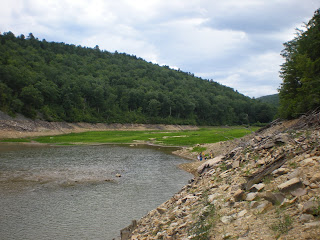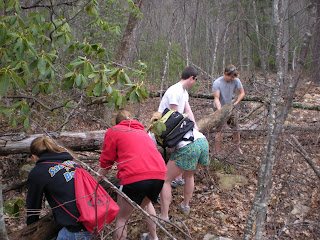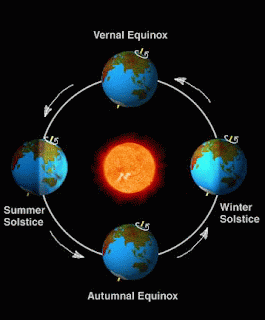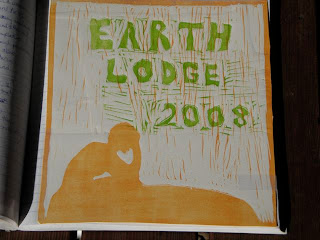
Today's discussion of Bryson's A Walk in the Woods and the idea of how people become so dependent on technology reminded me of a show I'm keeping up with on the Discovery Channel, called The Colony. The Colony documents a ten-week experiment that involves ordinary people from all spectrums of life and how they cope with a worldwide "disaster" context. As part of the experiment, a fairly-large section of Los Angeles is sectioned off and designed to resemble what the city would look like if a viral outbreak killed much of the population (think I Am Legend without the zombies). Here's a more thorough explanation from the official website:
"What would you do in the wake of a global catastrophe? How would you find food? Water? Shelter?
The Colony is a controlled experiment to see exactly what it would take to survive and rebuild under these circumstances. For 10 weeks, a group of 10 volunteers, whose backgrounds and expertise represent a cross-section of modern society, are isolated in an urban environment outside Los Angeles and tasked with creating a livable society.
With no electricity from the grid, no running water and no communication with the outside world, all the volunteers have to work with are their skills and whatever tools and supplies they can scavenge from their surroundings.
Experts from the fields of homeland security, engineering and psychology have helped design the world of The Colony to reflect elements from both real-life disasters and models of what the future could look like after a global viral outbreak.
Over the course of the 10-week experiment, the Colonists must work together to build the necessities of survival, such as a water-filtration system, a battery bank that powered their electricity, a solar cooker, a shower system and a greenhouse – and even some niceties (a coffee maker!)."
However, scavenging and innovation are not the only challenges the colonists must face. As part of the experiment, the producers have hired a dozen or so of "marauders" that try to steal the colonists' supplies, infiltrate the colony, and in general do other things that would threaten the security of the colony and thus remind the colonists of the true hardships of a survival situation. They begin to realize that they are not the only ones in need of things to survive and that many "outsiders" have no qualms or morals when it comes to survival. Putting this in a camping perspective, the colonists are like the campers with food, and the "outsiders" are the bears and other creatures who would steal it during the night if it were not stored properly. Similarly, the colonists quickly realize that not only must they acquire resources, but once they do, they have to take measures to protect them. The sense of security they possessed when in society is gone; here, they are truly in the "wild."
If anyone else is interested in the show, check out the first link, you can watch full episodes from there. Also, it is still playing Tuesday nights at 10pm on the Discovery Channel.
~Meg


































